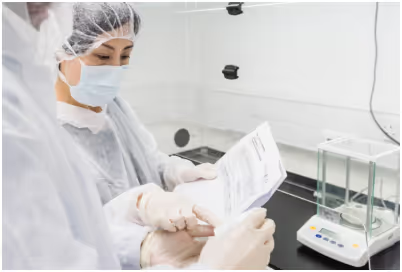Sponsor: Ferring Pharmaceuticals
Trial Type: Milk Transfer
Phase: Phase 1
Testing new medications for safety during breastfeeding can be a complex task. One crucial step involves understanding how much of a drug ends up in breast milk. Richmond Pharmacology, a leader in early-phase clinical research, tackled this challenge in a study just over a decade ago, demonstrating even then our ability to enrol challenging populations into early phase clinical trials even though recruiting participants proved particularly difficult.
The agent being tested was merotocin, a short-acting oxytocin-receptor designed to induce and support lactation in breastfeeding mothers and the study found the likelihood of clinically relevant transfer of merotocin through breast milk to infants was low.
The biggest hurdle? Convincing new mothers to stop breastfeeding –even temporarily. Breastfeeding is widely recognised for its immense benefits for both mothers and babies. Asking new mothers to deviate from this recommended practice presented an ethical dilemma as midwives were actively encouraging breastfeeding. Additionally, the study required participants to stay within our clinical research unit, away from the comfort of their own homes, with their newborns.
So, how did Richmond address these challenges? Here's where our location and transparent and sensitive handling of conversations on the topic(with new mothers) played a pivotal role. When this study was run, our research unit was situated right next to the hospital's maternity ward. This proximity made a very challenging task a little less challenging. On a daily basis senior members of the participant recruitment team would visit the maternity ward(with permission form the hospital) to speak with new mothers about taking part in the study. As you can appreciate most mothers said no.
Whilst some mothers were recruited into Part A of the study, Richmond expanded its search to include women in Part B of the study covering established breastfeeding. This was equally challenging in different ways as these mothers were now settled in (at home) to the early chapters of bringing up their new children. Once again transparent conversation with senior team members who could provide information to these new mothers significantly helped in converting some of these mothers into trial participants. Highlighting the benefits of these trials to future generations also helped in the recruitment process.
While enrolling participants remained a challenge, it wasn't insurmountable. By leveraging our close proximity to the maternity ward and fostering open communication, Richmond was able to recruit six participants from the nine mothers screened thus contributing 33% of the total population enrolled into this study from just one research site – a significant success in this sensitive research area.
A summary of the study is now published in Breastfeeding Medicine: https://www.liebertpub.com/doi/10.1089/bfm.2024.0044
















.avif)
